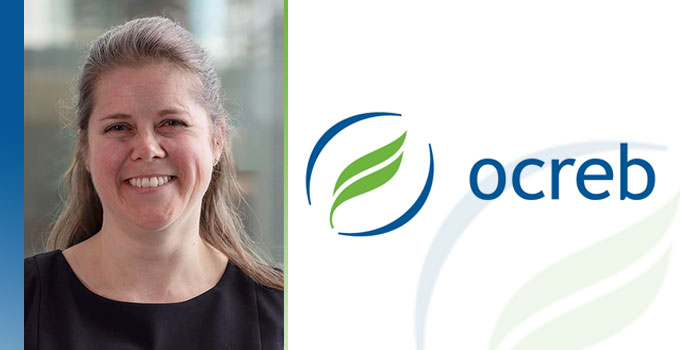A program of OICR, the Ontario Cancer Research Ethics Board (OCREB) includes more than 40 expert reviewers who specialize in cancer clinical trials.
Ethics boards are an essential part of cancer research.
They work to protect the rights and welfare of research participants who volunteer to join studies that generate knowledge and innovations that may help people live longer, better lives.
Most hospitals that do clinical research have their own research ethics boards that review study protocols, participant consent forms and other study documents.
But cancer research keeps changing and evolving, with study designs getting more complex and often involving multiple hospitals and cancer centres. These complexities can make it harder for research ethics board to review studies quickly and effectively, while continuing to ensure that every clinical trial meets the highest ethical standards.
For 20 years, the Ontario Cancer Research Ethics Board (OCREB) has been working toward exactly that goal.
OCREB is a central, expert research ethics board specializing in cancer and serving the hospitals and cancer centres in Ontario that conduct oncology clinical trials. The board is made up of over 40 clinicians, ethicists, statisticians, lawyers, and community members who have the qualifications and experience to evaluate the ethics of the proposed research for adult and pediatric oncology trials. OCREB has a chair and three vice chairs and is supported by a staff of seven.
A program of OICR that operates independently from the Institute’s research programs, OCREB is helping advance cancer clinical trials in Ontario by making the ethics review process efficient and thorough.
OICR News recently asked OCREB Executive Director Natascha Kozlowski about the Board’s unique role in Ontario cancer research, and how it could serve as a model to streamline biomedical research across Canada.
What are research ethics boards and why are they essential to conducting ethical research?
Ethics boards are independent committees made up of reviewers from different disciplines. They review research studies that involve people and their central role is to protect the rights and welfare of study participants. They ensure that the risks of research are minimized as much as possible and that the risks, benefits and burdens of the study are presented in a balanced way so that participants can make informed decisions.
How does having a consolidated, provincial ethics board like OCREB streamline the ethics review process in Ontario?
Imagine you have a clinical trial planned across three different hospitals in Ontario. Without OCREB, the research ethics boards at each of these hospitals would have to review the same study materials. That’s a lot of administrative burden that can ultimately slow down the research process.
Using OCREB, researchers can send the study materials as one application to one ethics board that reviews the study with all sites in mind. Once the study is approved, each site then submits an application to explain how they plan to carry out the trial at their centre.
So instead of having each local research ethics board review the study, OCREB can review the study and then quickly – usually within days – review and approve each of the abbreviated centre applications.
Why is it important to have a research ethics board specifically for cancer?
Clinical trials for cancer are very complex. They often have multiple arms across multiple institutions. And things move quickly in cancer. The standard of care keeps evolving and new technologies are always emerging. That means cancer clinical trials need the lens of specialty reviewers who understand cancer, understand the science and methodologies, and understand the experiences of people with cancer.
OCREB’s expert reviewers have specialized knowledge and understand the science behind cancer clinical trials and study design. They work together to understand the risks associated with a trial to support informed consent and demonstrate respect for trial participants.
Could the OCREB model be adopted more widely across biomedical research in Canada?
Having a centralized, disease-specific ethics board is quite unique in Canada. We were one of the first of our kind and remain a leader in research ethics 20 years later.
Recently, there have been calls to streamline the processes for setting up and running clinical trials in Canada, including ethics review. As these discussions continue, it will be important to look at the success of centralized boards like OCREB. We can learn a lot from what is already working well as we strive to improve the process for health research across Canada so that more people can benefit from scientific innovations.



